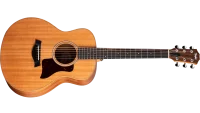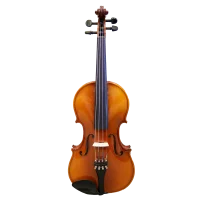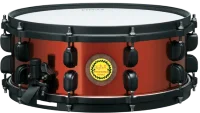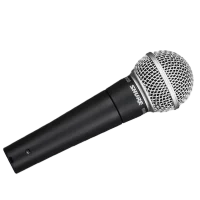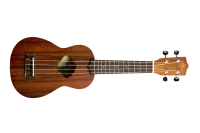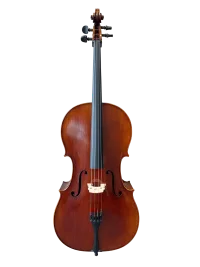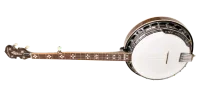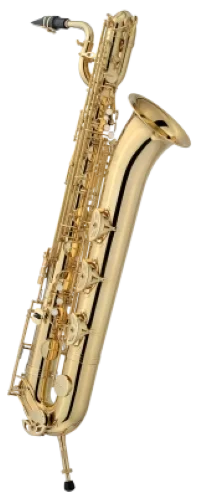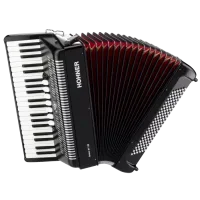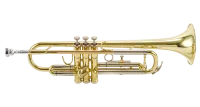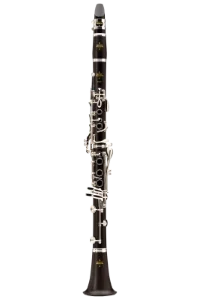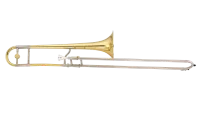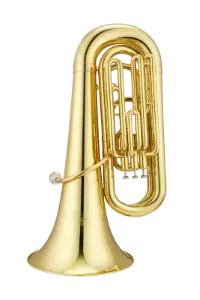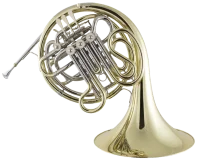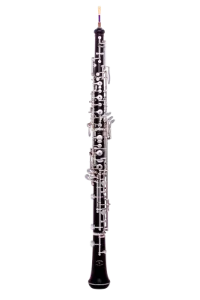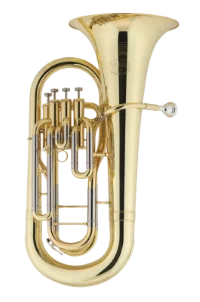Tuba Lessons
Begin your musical journey at Long & McQuade with private and online Tuba Lessons for students of all ages and skill levels. Whether you are learning the Tuba for the first time or you already have experience, our expert teachers will help you reach your goals in a professional, encouraging environment.
Registration RequestWhy Choose Long & McQuade for Tuba Lessons?
Train with experienced Tuba instructors who teach all ages and styles. Learn in comfortable studios with equipped on-site lesson rooms. Enjoy flexible scheduling with daytime, evening, and weekend options that accommodate your schedule. As a trusted name in music education across Canada, Long & McQuade offers a reliable path to your goals.

What Tuba Topics Will I Learn?
Playing an instrument like the Tuba is a lifelong skill. The topics below outline what many students study, but your path will be uniquely personalized to your goals. Whether your goal is to play for personal enjoyment, perform on stage, or prepare for a professional path, our Tuba Lessons give you the foundation and guidance to grow as a musician.
Beginner & Intermediate Topics
- Proper embouchure, breath support, and posture
- Producing a clear, resonant tone across the Tuba's range
- Reading music, rhythm, and basic notation
- Playing scales, arpeggios, and simple melodies
- Developing articulation skills such as tonguing and slurring
- Introduction to dynamics, phrasing, and expressive playing
- Performing beginner pieces in classical, band, or contemporary styles
- Playing along with songs and small ensemble music
Advanced & Professional Topics
- Expanding range, tone control, and technical fluency
- Advanced scales, modes, and extended repertoire
- Classical, orchestral, wind ensemble, and jazz works
- Developing endurance, phrasing, and stylistic interpretation
- Advanced articulation and breathing techniques
- Ensemble and band performance skills, focusing on blend and support
- Audition and exam preparation for RCM, school, or professional opportunities
- Techniques for recording, live performance, and stage confidence
Any Age | Any Stage | Any Style
Tuba Lessons for Kids
Ages 8-12
What to Expect for Kids Learning Tuba
- Fun, age-appropriate tuba lessons using simple songs and exercises
- Encouragement to build confidence and a love for music
- Focus on posture, breathing, and producing a clear, steady tone
- Introduction to reading music and playing with rhythm
- Option to learn casually or prepare for music exams
Learning Outcomes
- Play simple melodies with correct fingerings and breath support
- Develop strong tone quality and consistent sound production
- Improve focus, patience, and coordination through practice
- Gain performance confidence with optional recitals and group activities
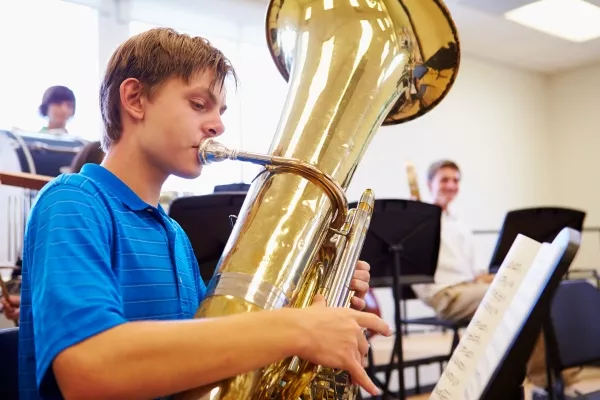
Tuba Lessons for Teens
Ages 13-18
What to Expect for Teens Learning Tuba
- Learn the music you enjoy in classical, jazz, band, or contemporary styles
- Preparation for RCM exams, school auditions, or ensemble participation
- Guidance for school bands, talent shows, or recording projects
Learning Outcomes
- Build creative independence and a strong musical identity
- Strengthen discipline and confidence through practice
- Use music as a positive outlet for expression and stress relief
- Develop a lifelong skill that supports both personal and academic growth
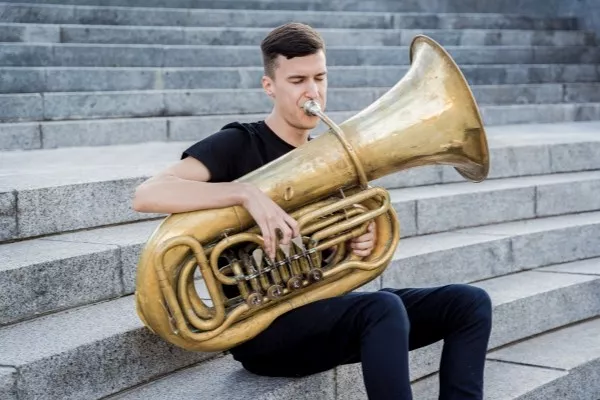
Tuba Lessons for Adults
Ages 19+
What to Expect for Adults Learning Tuba
- Lesson times available during evenings, weekends, and weekdays
- Play the music you love, from classical, band, or jazz
- No exams unless you'd like to set personal milestones
- Lessons designed for enjoyment, progress, and relaxation at your own pace
Learning Outcomes
- Reduce stress and support wellness through music
- Improve memory, focus, and coordination
- Develop a rewarding hobby that fits your schedule and lifestyle
- Experience steady progress and confidence with one-on-one tuba lessons
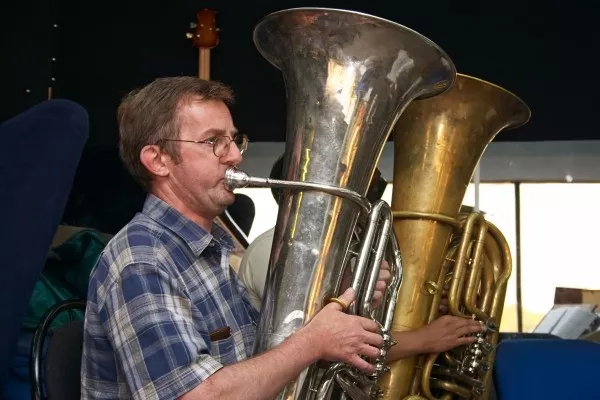
"I've always wanted to learn, but I don't have a Tuba."
This is one of the most common concerns we hear, and the good news is you don't need to own a Tuba to take lessons.
At Long & McQuade, we make it easy for beginners to get started without the pressure of buying an instrument right away. We offer affordable Tuba rentals and will help you choose the right model for your needs. Our team is here to support you every step of the way.
Understanding the Different Types of Tubas
If you're thinking about starting Tuba Lessons, here's a simple guide to the main types of Tubas. Each has its own unique sound, range, and role in music, from beginner learning to advanced performance.
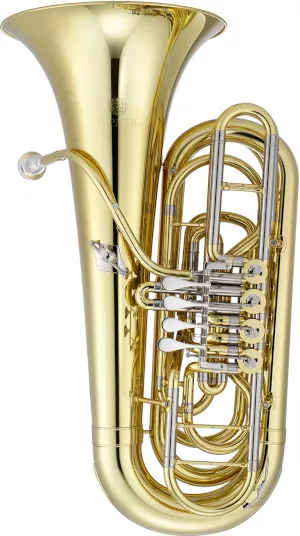
BB♭ Tuba
The BB♭ tuba is the largest and most common tuba you’ll see in schools and community bands. It produces a deep, rich sound that anchors the low end of the ensemble. This is the standard choice for beginners and advancing players because it provides the tone that most band music is written for. Compared to other tubas, it has the lowest range and gives the fullest bass foundation.
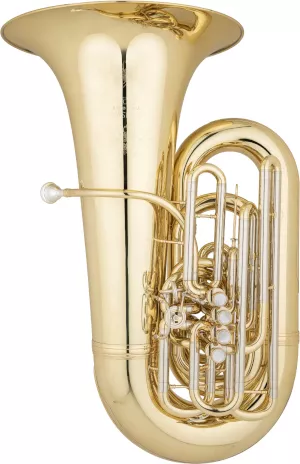
CC Tuba
The CC tuba is slightly smaller than the BB♭ and is pitched a whole step higher. It is popular among professional orchestral players because its tuning makes some classical music easier to play. It has a slightly brighter sound than the BB♭ while still providing a strong foundation. Compared to the BB♭ tuba, the CC is often chosen for advanced students and professionals focusing on orchestral playing.
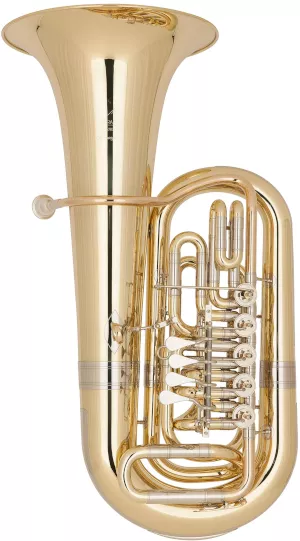
E♭ Tuba
The E♭ tuba is even smaller and pitched higher than both the BB♭ and CC tubas. Its lighter weight and easier handling make it a popular choice for younger students or students with a smaller stature that want a tuba that is more manageable. It has a brighter tone that stands out in solos and smaller ensembles. Compared to the larger tubas, it is more agile and often used in brass bands or solo literature.
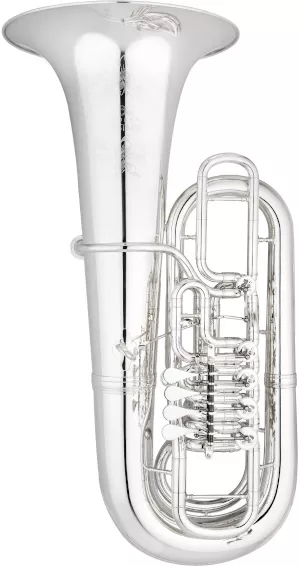
F Tuba
The F tuba is the smallest of the tubas and produces a higher, lighter sound. It is favored by advanced players and professionals for solo performances and higher orchestral parts where sound clarity and agility are important. Because of it's size, it's great for musicians with a smaller stature. Compared to the E♭ tuba, it offers even more precision in the higher register, making it a great instrument for serious tuba players.
"How do I Pick the Right Tuba Teacher?"
Choosing the right Tuba teacher is one of the most essential parts of your musical journey. At Long & McQuade, we believe a great instructor is not only experienced but also the right fit for your goals, personality, and learning style.
Whether you're a parent looking for an instructor for your child, a teen interested in a particular music style, or an adult learner seeking a new hobby, Long & McQuade will help you find the perfect teacher for your Tuba Lessons.
Choosing the Right Program at Long & McQuade
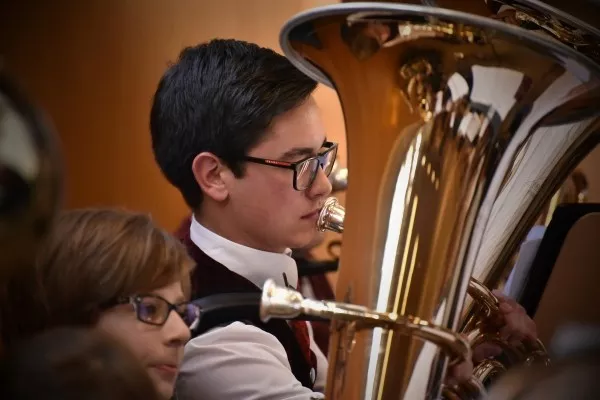
Private Tuba Lessons
Private Tuba Lessons at Long & McQuade are one-on-one with weekly 30- or 60-minute sessions. Your instructor creates a personalized learning plan tailored to your skills and goals. Flexible scheduling makes it easy to fit practice into busy weeks. Private lessons are suitable for students starting at age 8.
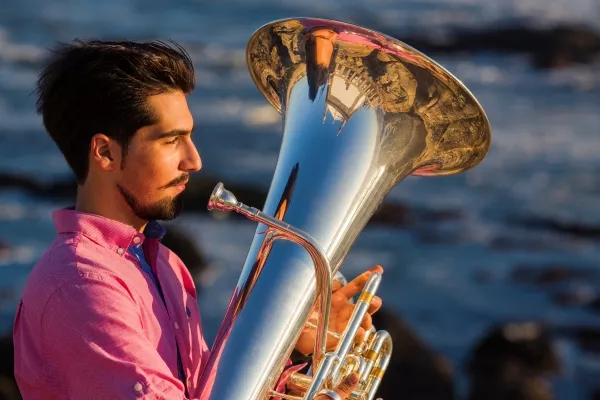
Online Tuba Lessons
Online Tuba Lessons at Long & McQuade are one-on-one with weekly 30-, 45-, or 60-minute sessions. Your instructor creates a personalized learning plan tailored to your skills and goals. Flexible scheduling makes it easy to fit practice into busy weeks. Online lessons are suitable for students starting at age 8.
"Should I take any Exams or Tests?"
It really depends on your goal and how you learn best.
Exams are always optional for Tuba students. For those who want structured milestones and formal recognition of their progress, music exams can be a valuable choice.
In Canada, there are a few exam boards that Tuba students often participate in, including the Royal Conservatory of Music (RCM). These programs provide a clear path for developing skills in performance, technique, and theory, while offering students a sense of achievement at each level.
Most Popular Exam Options in Canada
Exams can help students stay motivated, track progress, and gain a sense of achievement. They also provide valuable credentials that can be used for school credit or future opportunities in music.
Not every student needs to pursue exams; some prefer to play for fun or focus on performing. But for those who enjoy having goals, exams are an excellent way to celebrate progress and build confidence.

Royal Conservatory of Music (RCM)
The Royal Conservatory of Music is Canada’s most recognized and structured music education system, offering graded programs across a wide range of instruments. The Royal Conservatory of Music tuba exams supports students from beginner to advanced levels, focusing on breath control, tone production, range development, and ensemble skills. Exams include technical studies, prepared repertoire, sight reading, music theory, and ear training. RCM exams can count toward high-school credit in several Canadian provinces, making this a strong academic and performance pathway for tuba players.
ABRSM (Associated Board of the Royal Schools of Music)
The Associated Board of the Royal Schools of Music (ABRSM) is a UK-based examining body with international recognition and exam access in Canada. ABRSM’s tuba exams progress from Grade 1 through Grade 8, followed by advanced diplomas for performance and teaching. Students are assessed on prepared pieces, scales, sight reading, and aural skills, with a focus on tone quality, intonation, and musical interpretation. Its rigorous structure and global reputation make ABRSM a reliable choice for those pursuing orchestral or academic performance goals.

Trinity College London
Trinity College London is a UK-based music education board offering exam options to students across Canada. The Trinity tuba exams start from Initial to Grade 8, with higher-level diplomas available for advanced study. Students can select either traditional graded exams or performance-only assessments, depending on their learning style and focus. Trinity College emphasizes expressive performance, stylistic awareness, and technical confidence preparing players for ensemble, orchestral, or solo performance at a professional standard.
"How can I be successful in my Tuba Lessons?"
It's all about being consistent with practice.
The students who grow the most on their musical journey are the ones who practice regularly. Practicing for even just a few minutes a day can make a big difference.

